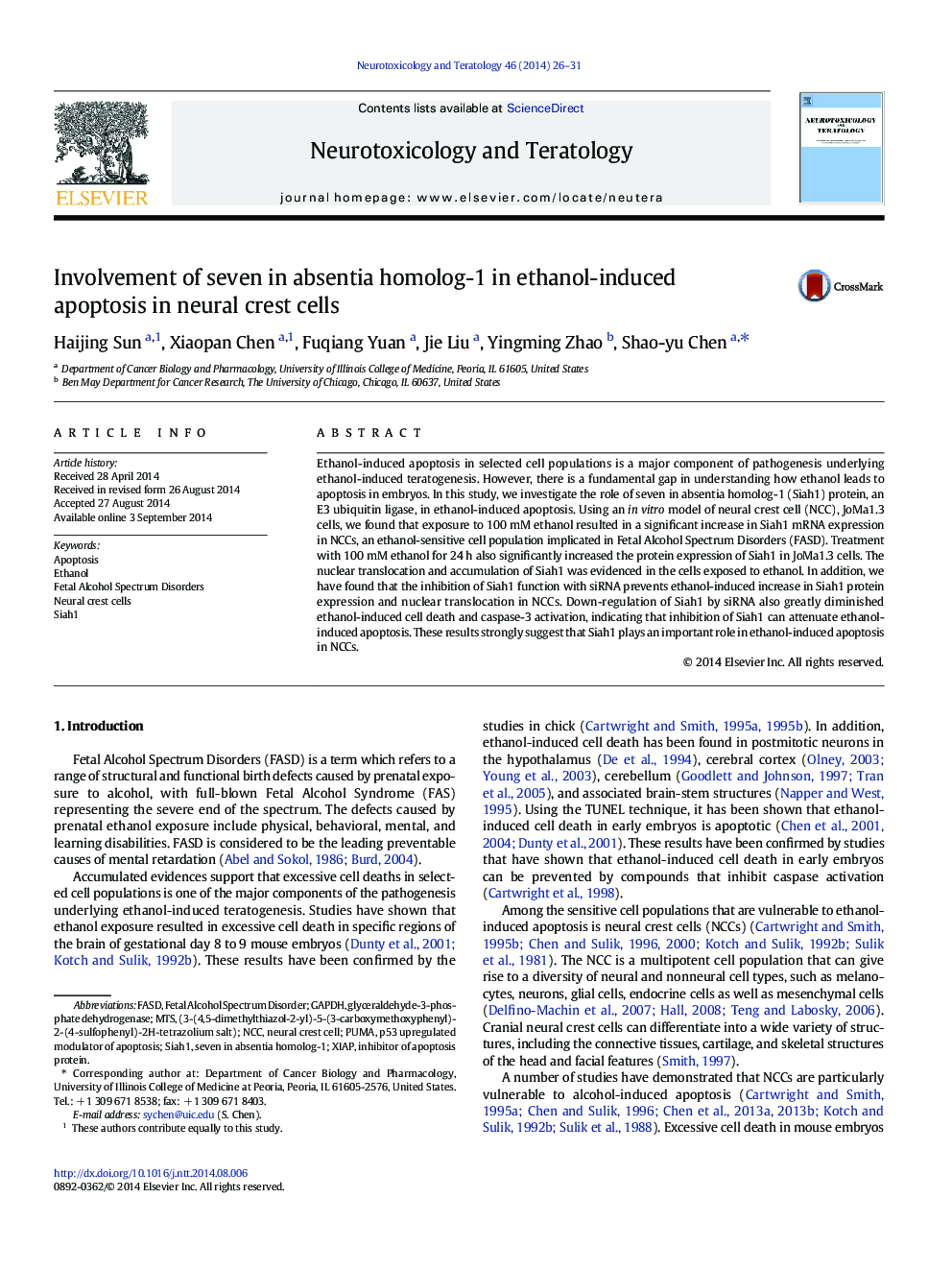| Article ID | Journal | Published Year | Pages | File Type |
|---|---|---|---|---|
| 2590937 | Neurotoxicology and Teratology | 2014 | 6 Pages |
•Ethanol exposure significantly increased Siah1 mRNA expression in NCCs.•Ethanol increased the protein expression and nuclear translocation of Siah1 in NCCs.•Siah1-siRNA reduced the expression and nuclear translocation of Siah1.•Down-regulation of Siah1 diminished caspase-3 activation and apoptosis in NCCs.•Siah1 signaling is involved in ethanol-induced apoptosis in NCCs.
Ethanol-induced apoptosis in selected cell populations is a major component of pathogenesis underlying ethanol-induced teratogenesis. However, there is a fundamental gap in understanding how ethanol leads to apoptosis in embryos. In this study, we investigate the role of seven in absentia homolog-1 (Siah1) protein, an E3 ubiquitin ligase, in ethanol-induced apoptosis. Using an in vitro model of neural crest cell (NCC), JoMa1.3 cells, we found that exposure to 100 mM ethanol resulted in a significant increase in Siah1 mRNA expression in NCCs, an ethanol-sensitive cell population implicated in Fetal Alcohol Spectrum Disorders (FASD). Treatment with 100 mM ethanol for 24 h also significantly increased the protein expression of Siah1 in JoMa1.3 cells. The nuclear translocation and accumulation of Siah1 was evidenced in the cells exposed to ethanol. In addition, we have found that the inhibition of Siah1 function with siRNA prevents ethanol-induced increase in Siah1 protein expression and nuclear translocation in NCCs. Down-regulation of Siah1 by siRNA also greatly diminished ethanol-induced cell death and caspase-3 activation, indicating that inhibition of Siah1 can attenuate ethanol-induced apoptosis. These results strongly suggest that Siah1 plays an important role in ethanol-induced apoptosis in NCCs.
